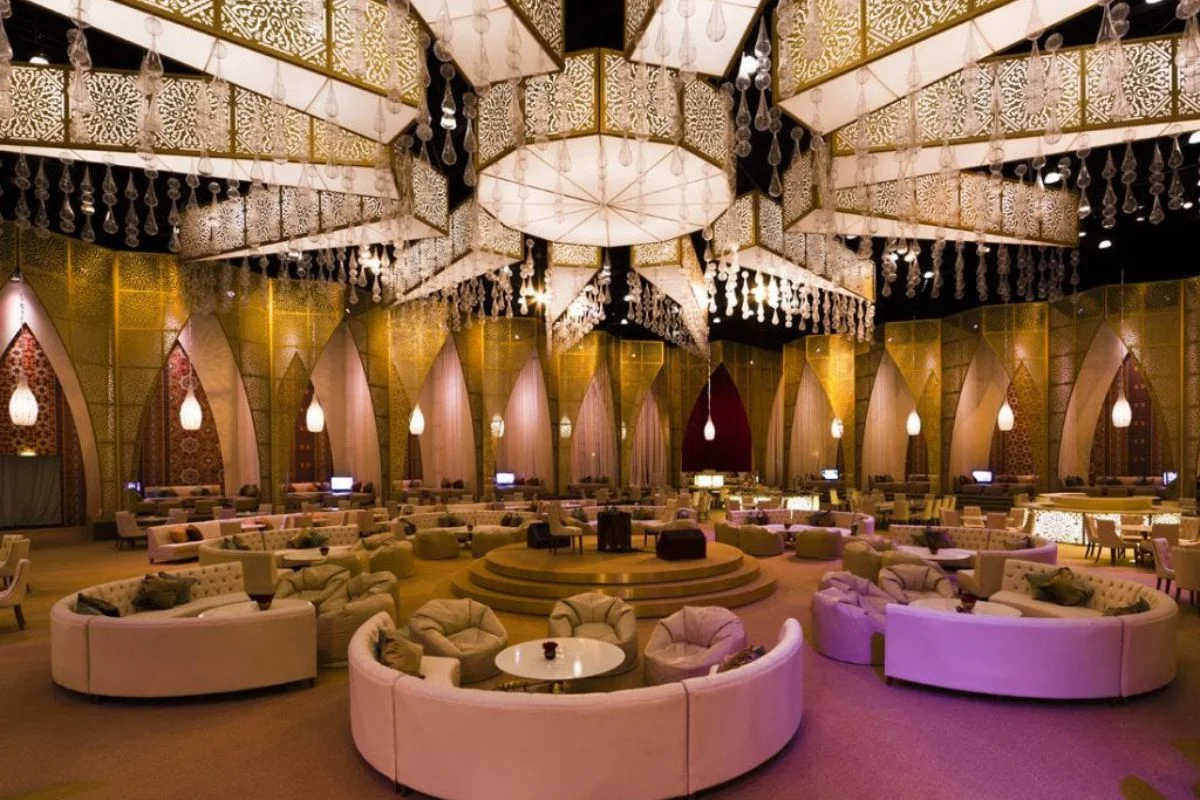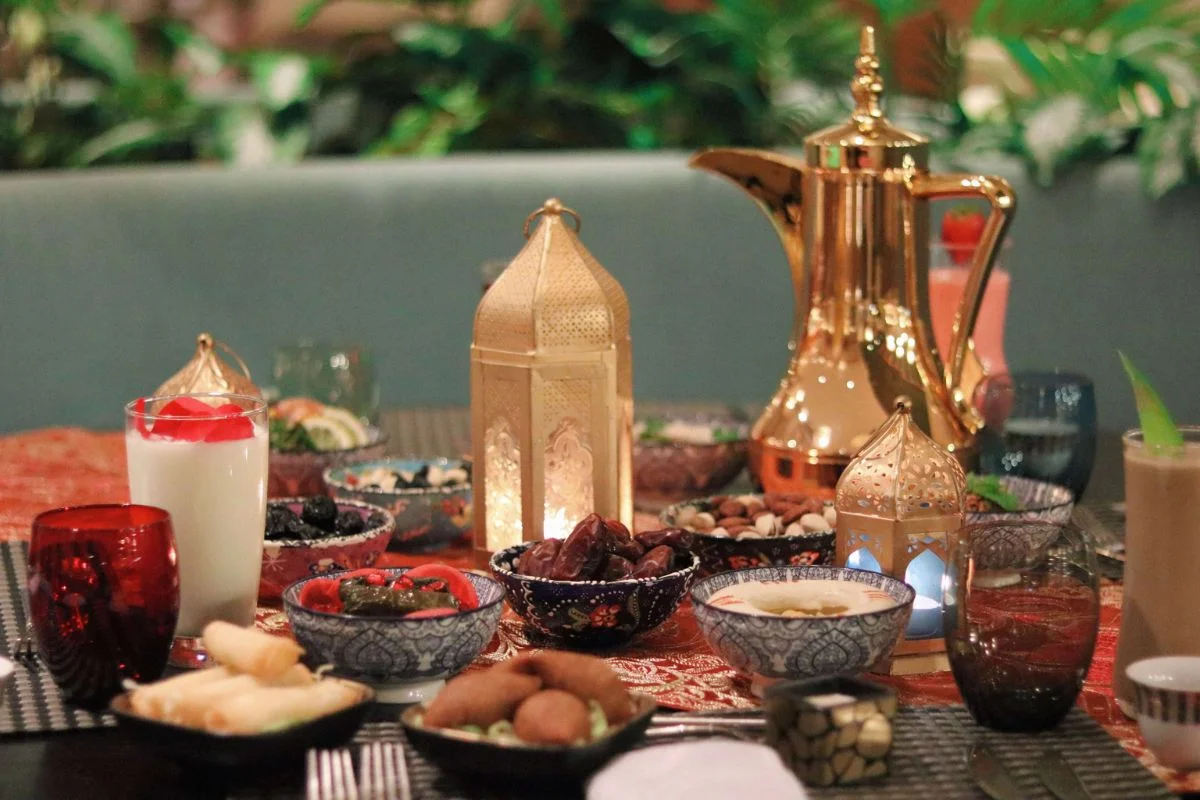As the holy month of Ramadan approaches, Muslims around the world eagerly anticipate the cherished tradition of breaking their fast during Iftar gatherings. These gatherings are not only a time for spiritual reflection and communal prayer but also an opportunity to come together with loved ones in a spirit of fellowship and celebration. Central to the Iftar experience is the setting in which these gatherings take place – the Iftar Majlis.
The Iftar Majlis serves as the heart of Ramadan festivities, providing a welcoming and inviting space for friends and family to come together to share in the blessings of the season. From the arrangement of furnishings to the selection of decor elements, every detail of the Iftar Majlis is carefully considered to create an atmosphere of warmth, comfort, and hospitality.
The Significance of Iftar Majlis Gatherings
In the Islamic tradition, Iftar Majlis gatherings hold profound significance, especially during the holy month of Ramadan. As the sun sets and the call to prayer echoes through the air, Muslims around the world eagerly gather to break their fast together in what is known as Iftar. The Iftar Majlis, or gathering, serves as a central focal point of Ramadan observance, embodying the spirit of community, hospitality, and spiritual nourishment.
At its core, the Iftar Majlis is a manifestation of the teachings of Islam, emphasizing the importance of generosity, compassion, and unity. It provides an opportunity for family, friends, and neighbors to come together in fellowship, regardless of social status, ethnicity, or background. In the act of sharing a meal, Muslims strengthen bonds of kinship and friendship, fostering a sense of belonging and solidarity within the community.
Moreover, the Iftar Majlis holds deep spiritual significance for Muslims, serving as a time for reflection, gratitude, and worship. Breaking the fast is not merely a physical act but a spiritual one, symbolizing the breaking of barriers, both physical and spiritual, and the renewal of one’s commitment to faith. As individuals gather to partake in the blessings of Iftar, they are reminded of the importance of humility, gratitude, and self-discipline in their lives.
The Iftar Majlis also serves as a platform for acts of charity and kindness, as Muslims are encouraged to share their blessings with those less fortunate. It is common practice for Iftar gatherings to include guests from all walks of life, including the needy, the orphaned, and the marginalized, embodying the spirit of generosity and compassion that lies at the heart of Ramadan.
In essence, the significance of Iftar Majlis gatherings extends far beyond the act of breaking the fast; it is a celebration of community, spirituality, and shared humanity. As Muslims gather to partake in this timeless tradition, they are reminded of the values of compassion, gratitude, and unity that lie at the core of their faith, fostering a sense of connection and belonging that transcends borders and boundaries.
Designing Your Iftar Majlis
Designing your Iftar Majlis is a crucial step in creating a welcoming and inviting space for your guests to gather and break their fast during Ramadan. Whether you’re hosting a small family gathering or a larger community event, thoughtful consideration of the design elements can enhance the ambiance and elevate the overall experience. Here are some key aspects to consider when designing your Iftar Majlis:
Choosing the Right Space:
- Consider the size and layout of your space, whether it’s indoors or outdoors.
- Ensure there is ample seating for your guests, including comfortable cushions, sofas, or floor seating arrangements.
- Pay attention to the flow of traffic and ensure there is enough room for guests to move around freely.
Furniture and Seating Arrangements:
- Select furniture that is both functional and aesthetically pleasing, such as low tables, ottomans, and Moroccan-style sofas.
- Arrange seating in a way that promotes conversation and interaction among guests, creating a sense of intimacy and camaraderie.
- Incorporate cushions, throws, and floor pillows to add comfort and coziness to the seating area.
Lighting and Ambiance:
- Choose lighting that creates a warm and inviting atmosphere, such as lanterns, candles, or string lights.
- Consider using soft, diffused lighting to enhance the mood and create a sense of serenity.
- Incorporate natural elements like flowers, plants, or water features to add a touch of tranquility to the space.
Decor Ideas for Iftar Majlis
Decorating your Iftar Majlis is an essential aspect of creating a welcoming and festive atmosphere for your guests to enjoy during Ramadan. From selecting the right color schemes to incorporating traditional motifs and decorative accents, here are some inspiring decor ideas to help you transform your space:
Color Schemes and Themes:
- Embrace the rich and vibrant colors associated with Ramadan, such as deep blues, rich reds, and golden yellows.
- Consider incorporating traditional Islamic patterns and motifs, such as geometric designs, arabesques, and calligraphy, into your decor.
- Experiment with different color schemes and themes that reflect the spirit of Ramadan, such as Moroccan-inspired decor or modern minimalist designs.
Table Settings and Centerpieces:
- Set a beautiful table with elegant dinnerware, including plates, bowls, and glasses in coordinating colors and designs.
- Create stunning centerpieces using fresh flowers, candles, or decorative lanterns to add a touch of elegance and sophistication to your table.
- Incorporate traditional elements like dates, nuts, and dried fruits into your table decor, both as a decorative accent and a symbolic gesture of hospitality.
Decorative Accents and Accessories:
- Hang decorative lanterns or string lights to create a magical ambiance and add a warm glow to your Iftar Majlis.
- Use decorative rugs, throws, and cushions to add texture and coziness to your seating area, creating a comfortable and inviting space for your guests.
- Incorporate cultural and religious symbols, such as crescent moons, stars, and Islamic calligraphy, into your decor to infuse your space with spiritual significance.
Culinary Delights: Recipes and Menu Ideas for Iftar
The culinary aspect of Iftar holds great significance during Ramadan, as it brings together family and friends to break their fast and enjoy a delicious meal. Planning a diverse and flavorful menu is essential to ensure a memorable and satisfying experience for your guests. Here are some mouthwatering recipes and menu ideas to inspire your Iftar feast:
Traditional Iftar Foods and Beverages:
- Dates: Start your Iftar with a traditional offering of dates, which provide a quick source of energy and nutrients after a day of fasting.
- Lentil Soup (Shorbat Adas): A hearty and nutritious soup made with lentils, onions, garlic, and spices, perfect for warming the stomach after fasting.
- Samosas: Crispy, golden pastries filled with spiced potatoes, peas, and sometimes meat, served with tangy tamarind or mint chutney for dipping.
- Fruit Chaat: A refreshing salad made with a variety of fresh fruits, tossed with tangy spices, lemon juice, and chaat masala for a burst of flavor.
- Rose Milk (Rooh Afza): A refreshing drink made with milk, rose syrup, and basil seeds, served cold to quench thirst and cool the palate.
Healthy and Refreshing Options:
- Watermelon and Feta Salad: A light and refreshing salad made with juicy watermelon chunks, tangy feta cheese, fresh mint, and a drizzle of balsamic glaze.
- Grilled Vegetable Platter: Seasonal vegetables marinated in olive oil, garlic, and herbs, then grilled to perfection and served with a creamy yogurt dip.
- Quinoa Tabouleh: A modern twist on the classic Middle Eastern salad, made with protein-rich quinoa, fresh herbs, diced tomatoes, cucumbers, and a zesty lemon dressing.
- Baked Falafel: Healthier than traditional fried falafel, these baked chickpea patties are seasoned with herbs and spices, then baked until crispy on the outside and tender on the inside.
- Fruit Sorbet: A light and refreshing dessert made with pureed fruit, sugar, and lemon juice, frozen into a silky-smooth sorbet that’s perfect for cooling off after a hearty meal.
Menu Planning Tips and Suggestions:
- Offer a variety of dishes to cater to different tastes and dietary preferences, including vegetarian, gluten-free, and dairy-free options.
- Consider incorporating seasonal ingredients and flavors into your menu to highlight the best of what’s available.
- Don’t forget to include plenty of hydrating beverages, such as water, fresh juices, and herbal teas, to help rehydrate after a day of fasting.
- Plan ahead and prepare as much as possible in advance to minimize stress and ensure a smooth and enjoyable Iftar experience for you and your guests.
- Finally, don’t forget to leave room for dessert! Whether it’s a traditional sweet treat like baklava or a modern creation like fruit salad, ending your Iftar on a sweet note is a time-honored tradition that everyone can enjoy.
Iftar Majlis Etiquette and Customs
Observing proper etiquette and customs during Iftar Majlis gatherings is essential to ensure a respectful and enjoyable experience for all participants. Whether you’re hosting or attending an Iftar gathering, it’s important to be mindful of the following etiquette guidelines:
Hosting Protocol and Responsibilities:
- Extend invitations to guests well in advance and communicate essential details such as date, time, and location.
- Welcome guests warmly as they arrive and express gratitude for their presence.
- Ensure that the Iftar table is set with an abundance of food and beverages to accommodate all guests.
- Encourage guests to begin breaking their fasts at the designated time, following the call to prayer.
- Offer additional prayers and supplications for blessings and prosperity for all in attendance.
Guest Etiquette and Considerations:
- Arrive on time or slightly before the designated Iftar time to allow for proper preparation.
- Offer a small gift or token of appreciation to the host as a gesture of gratitude for their hospitality.
- Avoid overindulging in food and beverages, and be mindful of portion sizes to ensure there is enough for everyone.
- Engage in polite and respectful conversation with other guests, avoiding topics that may be contentious or sensitive.
- Express gratitude to the host before departing and offer to help with any cleanup or tasks that may be necessary.
Spiritual Practices and Traditions:
- Begin the Iftar meal by breaking your fast with a date and a sip of water, following the example of the Prophet Muhammad (peace be upon him).
- Offer prayers and supplications before and after the meal, expressing gratitude for the blessings of Ramadan.
- Share reflections on the significance of Ramadan and the importance of fasting as a spiritual practice.
- Take time to connect with others on a deeper level, sharing stories, experiences, and prayers for the well-being of all.
- Conclude the Iftar gathering with a final prayer and expression of gratitude for the opportunity to come together in fellowship and worship.
Conclusion
In summary, the Iftar Majlis is not just a meal; it’s a cherished tradition that embodies the spirit of Ramadan – a time for reflection, gratitude, and community. From the warm welcome of hosts to the respectful presence of guests, every aspect of these gatherings is steeped in cultural and spiritual significance.




